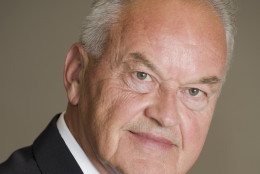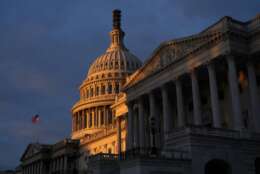Hiring/Retention
-
The National Academy of Public Administration has been holding panel discussions to come up with ideas for the next administration to hit the ground running.
August 09, 2016 -
Rob Klopp, the SSA chief information officer, and Rob Thomas, the deputy assistant secretary and principal deputy CIO in VA’s Office of Information and Technology, both are focusing on workforce training to move off legacy systems.
August 05, 2016 -
When trying to find and recruit new talent, federal agencies can have too much of a good thing, namely data. But if you know how to use data, you can quickly zero in on the people with real potential. The Partnership for Public Service teamed up with LinkedIn to explore how this works. Tim McManus, vice president for education and outreach at the Partnership, fills in Federal Drive with Tom Temin.
August 03, 2016 -
A new report aims to put to rest the question of whether a national and global shortfall of cybersecurity talent is a genuine problem.
August 03, 2016 -
Do your federal agency's hiring and firing policies follow the rules of the Old Maid card game? Senior Correspondent Mike Causey dares to tackle that oh-so politically incorrect subject.
August 03, 2016 -
What happens when a government agency receives bad publicity for something it is doing? Find out this week when Federal News Radio reporters Nicole Ogrysko and Meredith Somers join host Mike Causey on Your Turn. August 3, 2016
August 02, 2016 -
A new report from GAO found that the top three benefits of telework reported by agencies were improved recruitment and retention, improved work-life balance and increased productivity.
August 02, 2016 -
The Office of Personnel Management is looking to the military as it sets up its new cyber workforce strategy.
August 02, 2016 -
The Navy is incorporating virtual environments and distance learning so sailors can get training they need and not spend long periods away from their duty stations. It's all part of the long term effort known as Sailor 2025.
August 02, 2016 -
Federal managers advise that to take the next step in your career in government, it takes initiative and an understanding and acceptance that responsibilities will change.
August 01, 2016 -
The Homeland Security Department drew large crowds to its first-ever tech and cybersecurity job fair in Washington this week. The department interviewed applicants, made tentative offers and started the security clearance review process on the spot for about 150 talented candidates.
July 29, 2016 What's the latest in the clearance job market? Find out this week when Evan Lesser, managing director and co-founder of ClearanceJobs.com, joins host Derrick Dortch. July 29, 2016
July 29, 2016-
After releasing policy on phased retirement last month, DoD is preparing for implementation. DoD components are opting to introduce phased retirement on their own terms by creating individual plans and mentoring guidelines based on their needs.
July 27, 2016 -
To help with retention rates, the Air Force is eliminating some additional duties from airmen's responsibilities.
July 26, 2016 -
USPS' chief HR executive wants Congress to fully integrate the agency's health plans with Medicare, give the agency control of pricing, and more.
July 22, 2016














